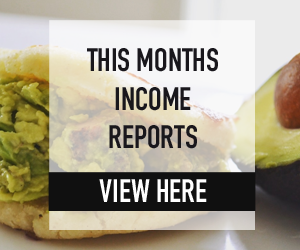Cryptocurrencies have been taking the world by storm, and Colombia is no exception. The South American country has seen a significant increase in the use and adoption of cryptocurrencies in recent years. However, with this rise in popularity, many are left wondering about the current regulations and laws surrounding cryptocurrency in Colombia. In this blog post, we will explore the nuances of cryptocurrency regulations in Colombia and provide you with all the information you need to know as an enthusiast or investor.
What is Cryptocurrency?
Before diving into the regulations, let’s first define what cryptocurrency is. Cryptocurrency, or crypto for short, is a digital or virtual form of currency that uses blockchain technology to secure financial transactions. These digital assets act as a medium of exchange, just like traditional fiat currencies, but they are decentralized and operate independently of a central authority.
Bitcoin, the first and most popular cryptocurrency, was created in 2009, and since then, thousands of other cryptocurrencies have emerged, including Ethereum, Litecoin, and Ripple. These digital currencies have gained popularity due to their potential for high returns and their ability to operate globally without the need for traditional banking systems.
What is the Current State of Cryptocurrency Regulations in Colombia?
Colombia has been relatively open to the use and adoption of cryptocurrencies, with the government taking a favorable stance towards digital assets. In 2016, the Colombian government recognized Bitcoin and other cryptocurrencies as digital assets and not considered legal tender.
However, the government also warned citizens about the potential risks associated with cryptocurrencies and advised them to use them at their own risk. In 2017, the Colombian government released a statement stating that cryptocurrencies are not regulated, and there are no laws or regulations in place to protect investors or users from potential scams or frauds.
Despite this lack of regulation, the Colombian government has also taken steps to promote and support the development of blockchain technology and cryptocurrencies in the country. In 2018, the government announced a partnership with the Inter-American Development Bank to create a blockchain-based platform to streamline public procurement processes.
Are There Any Laws Specifically Related to Cryptocurrencies in Colombia?
At the moment, there are no specific laws in Colombia that regulate or govern the use of cryptocurrencies. However, there are some existing laws that may apply to the use of digital assets.
The Colombian government has recognized that cryptocurrencies can be used for criminal activities such as money laundering and terrorist financing. As a result, the country’s Financial Superintendence has issued a warning to financial institutions to be vigilant and report any suspicious transactions involving cryptocurrencies.
Additionally, the Colombian Tax Authority has stated that profits made from cryptocurrency investments are subject to income tax. This means that individuals and businesses are required to report their cryptocurrency earnings and pay taxes on them.
What is the Future of Cryptocurrency Regulations in Colombia?
While the current stance of the Colombian government towards cryptocurrencies is relatively lenient, there have been talks of introducing regulations in the future. In 2019, a draft bill called the “Digital Economy Act” was proposed, which would provide a legal framework for the use of cryptocurrencies in Colombia.
The bill proposes to define cryptocurrencies as digital securities and would require exchanges and other service providers to register with the government and comply with anti-money laundering and know your customer (KYC) regulations. It also aims to protect consumers from potential scams and frauds in the cryptocurrency market.
What Does this Mean for Cryptocurrency Enthusiasts and Investors in Colombia?
For cryptocurrency enthusiasts and investors in Colombia, the lack of specific regulations may seem concerning. However, the government’s favorable stance towards digital assets and the potential for future regulations could lead to a more secure and regulated environment for cryptocurrency transactions in the country.
It is crucial for individuals and businesses involved in cryptocurrencies to educate themselves on the current regulations and stay updated on any developments in the future. It is also recommended to use reputable exchanges and service providers to minimize the risk of scams and frauds.
Conclusion
In conclusion, while there are no specific laws or regulations in place for cryptocurrencies in Colombia, the government has taken a favorable approach towards digital assets. The lack of regulations may seem daunting, but the potential for future developments could lead to a more secure and regulated environment for cryptocurrency users and investors in the country. As with any investment, it is essential to stay informed and educated on the current laws and regulations to make informed decisions.
NOTE: This is not financial advice.
Other ways people asked this question
- What are the current laws and regulations for cryptocurrency in Colombia?
- Is it legal to use cryptocurrency in Colombia?
- Are there any tax implications for using and investing in cryptocurrency in Colombia?
- What is the government’s stance on blockchain technology in Colombia?
- Will there be any future regulations for cryptocurrencies in Colombia?















